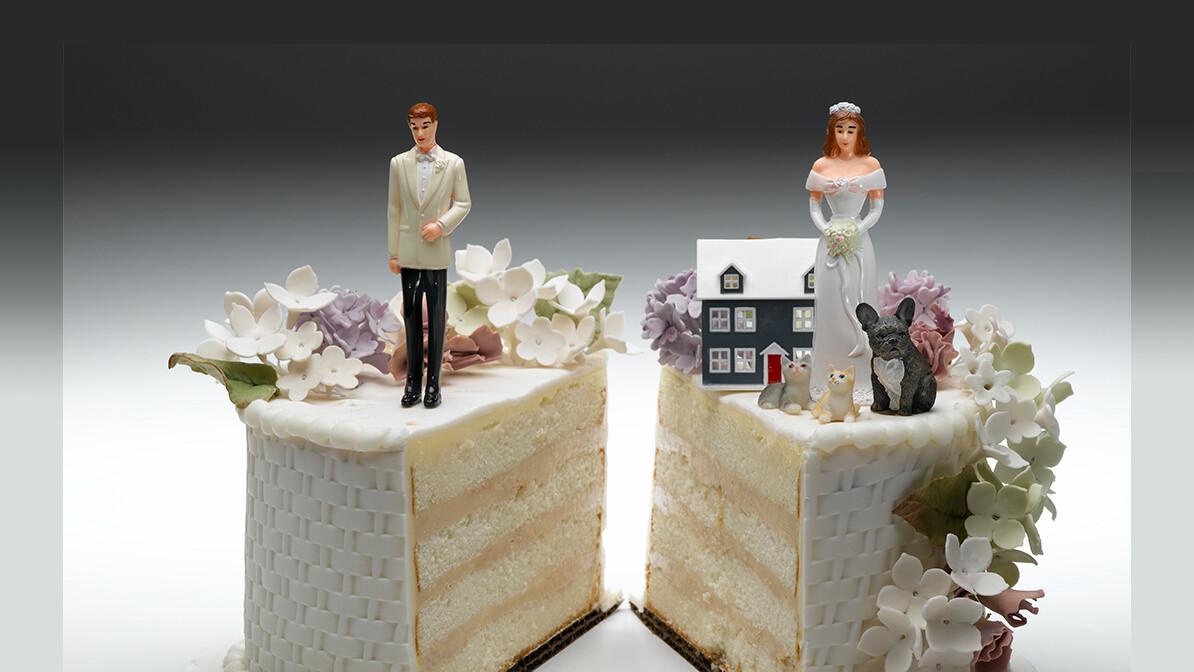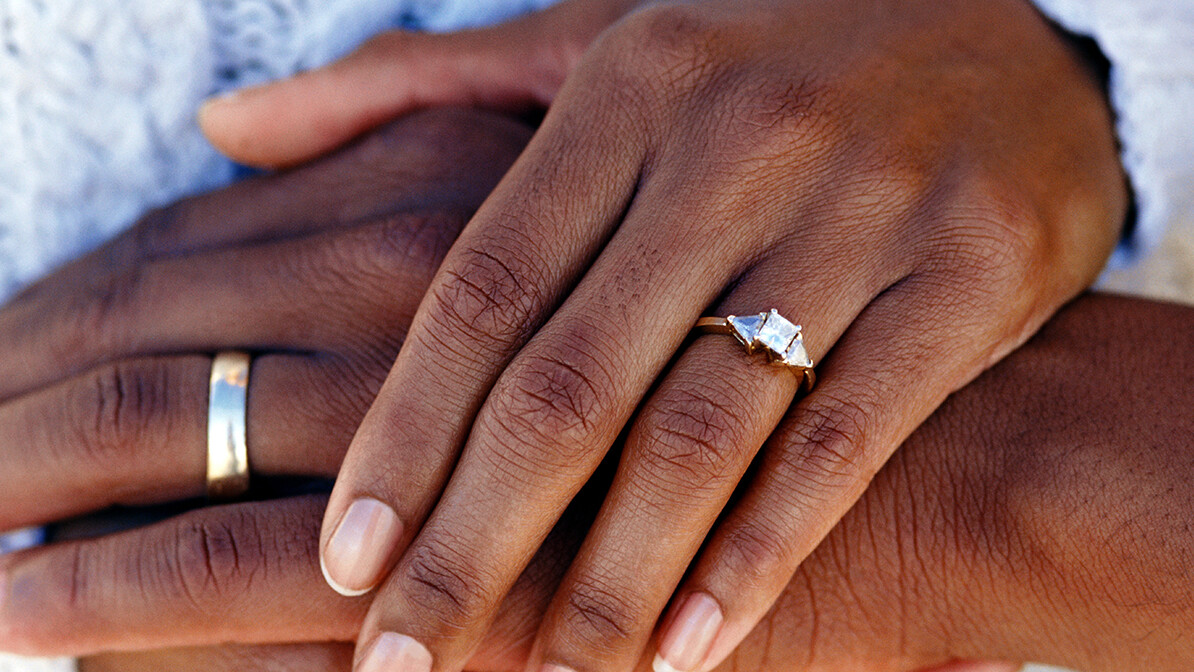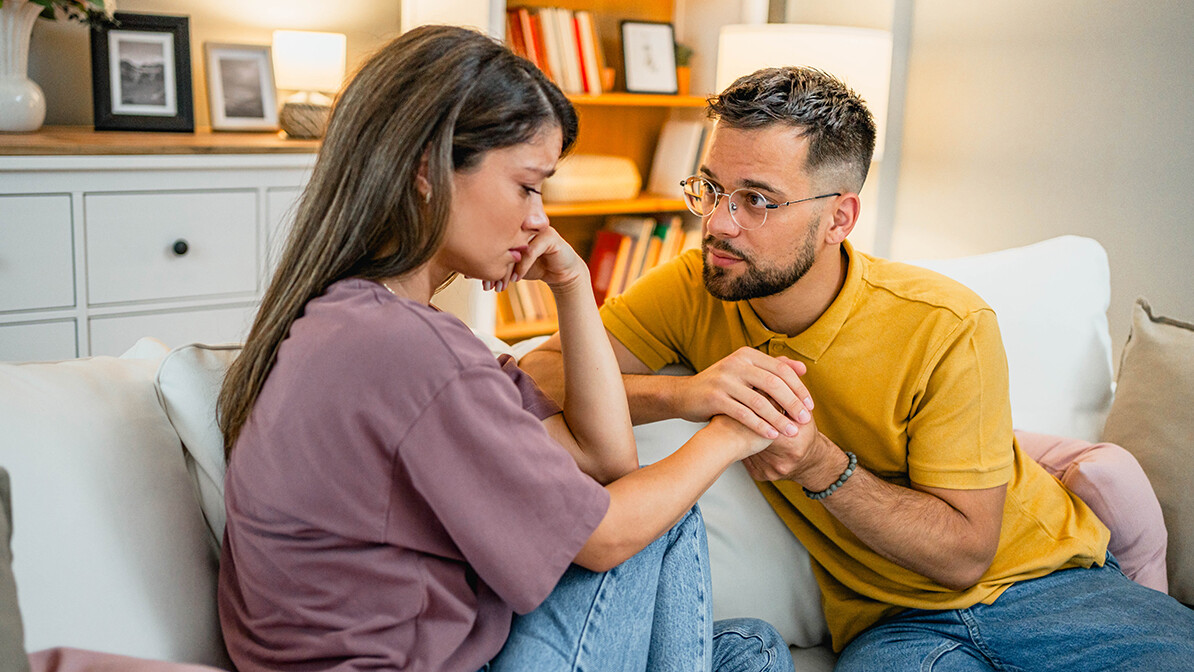- Home
- Relationships
- Linda Rooks: Fighting for Your Marriage While Separated

Linda Rooks: Fighting for Your Marriage While Separated
Craig von Buseck: The subject of this book was from your own experience, right?
Linda Rooks: That’s how it began, but that was over 20 years ago. We went through a three-year separation and then we got back together. My first book, Broken Heart On Hold, came out of our separation. I wrote that when I was going through a lot of hard times. I would write on my computer until God brought me to a place of peace. And I did that over and over and over and over.
CVB: I can relate with that.
Linda: Well, when we got back together, I showed my husband some of the things I’d written and he said, “This is a Romans 8:28. This is how God can use the pain that we had to help other people.” So Broken Heart On Hold was published in 2006.
I did not expect this, but right away I started getting emails from people who were going through the same thing and wanted advice. And so, I would answer them and then I would respond to them and tell them what I thought they should do. Then my husband and I started a marriage ministry in our church called Marriage 911. We started helping people whose marriages were in crisis. I started seeing so many marriages come back together and be restored. Even when people had divorce papers in their hands and were ready, yet they were restored. They are good marriages, and they are happy marriages. Some of them are just wonderful at this point.
I started realizing that the first book was to give people hope and help them get stronger emotionally and spiritually. But I thought we need a book about the practical things to do to really help them restore their marriages. I was beginning to see what those things were.
When one person wants to leave the marriage and the other person wants to stay, the person who wants to keep the marriage doesn’t know what to do. They usually do all the wrong things. They’ll chase after them and say, “what did I do wrong? What can we do? Can we go to counseling? When are you coming home? How long are you going to be gone?” When they do that, they’re really pushing the other person farther away because that person is in conflict of some kind. They’re running from some kind of conflict that might just be in their own head or might be in the home. But if you start chasing after him or her, it creates more conflict.
CVB: It pushes them away.
Linda: They need to give their partner space, which is really hard. Basically, all the things that are the right things to do, the only way you can probably do it is if God is giving you the strength to do it. Otherwise, it’s just not the natural thing to do. It’s not what you want to do. You don’t want to give space to this person who’s just left.
CVB: In your case, how long were you separated and how did the road back begin?
Linda: We were separated for three years and one of the questions that everybody always asks is what turned the marriage around. That has always been a hard thing to answer because there was not one thing that happened.
CVB: There’s no lucky charm.
Linda: No, there’s not like a magic moment. And so, after this book came out, I know, I knew that question was going to come up again. I was praying one morning, and I said, “God, how do I answer this question?” And I felt God saying, “You have the answer right in your book. Every chapter title in your book, when you expand on it, is one of the answers to turn a marriage around.”
Each of these chapters talks about one of the things that happened to turn our marriage around.
CVB: So, it happened in layers?
Linda: In layers, right. It is a lot of different steps.
A separation is a very confusing and awful time. It’s complex and it’s crazy. You know, there’s nothing simple about it. Understanding how to navigate that is really hard. The first thing that a person needs to do is to give that spouse space and put the spouse on the back burner and focus on God. Let God show you what you need to do.
And that’s hard to do. You’re usually obsessed with what’s going on and you don’t want to do that. Often the first thing to do is to focus on yourself. In my case, we had been separated for an entire year before I realized that any of it was my fault. I thought it was all his fault for one whole year. And then God literally woke me up in the middle of the night and all of a sudden, I saw myself in ways I did not like. And I thought, “Oh my gosh, it’s not all his fault.”
I did not like the person that I was looking at. At that point I started reading books and listening to Christian pastors more and more to see what God might want to tell me that I needed to do differently. And so that’s a big part of it.
The other thing is, at some point, you do start having communication again hopefully. When that happens, for the person who has been left, it is important for them to just to be positive. Say positive things. You know, you want to get into all the issues, but begin with just speaking positive words. Slowly build the trust and safety with the other person to get to that point where you can really deal with the issues.
It takes a while, because when you have a marriage that’s been broken, there’s something really broken. When you come to a point of a separation, there’s something broken and you don’t just get back together. At the beginning, when we were first separated, we went to a counselor whose objective was simply to get us back together. So, after two months we did get back together, and we were back together for two minutes. I was walking on eggshells and nothing had changed. Everything was still the same. So, he left again after two months.
A separation is a time when you really need to get with God and let Him show you what you need to do differently.
CVB: Now that’s a process. You may not hear from God immediately. Like you said, it took you a while to come to the point where you were ready to say, “Yeah, I have responsibility in this.” Was there a time after you went through that season of discovery with the Holy Spirit that finally you said, “Okay, now we can start counseling to possibly work towards a reconciliation? How did that work in your situation?
Linda: Well, basically what happened is that my husband kind of strayed away from God. So, he had a real encounter with God. He really got his attention. So, he became more open to what God wanted to do in his life. So that was a real big turning point.
Another big turning point even before that, was that our daughter was getting married and we were in a bad place at that point. I didn’t want our situation to be a blot on her wedding. So, I went on a fast. I prayed and asked God, “What do I do about this?” I felt God telling me to ask my husband to help me pick out the food for the reception. So, I did. And he did. He went with me and we picked out the food for the reception.
After that we worked together for a little while and walked down the pretty little town when we were walking around the town together. After that he started asking me to go out for dinner, or go out to a movie, or something like that. And we started what we now call friendship dating. It was just friends – nothing romantic about it – just spending time together.
We did that for a whole year. At the end of that year he asked me to go to his firm’s Christmas party. They had one of these white elephant exchanges. We were laughing about some of the presents and he had taken me back home. All of a sudden, he grabbed me and kissed me, and it was sort of like, okay, now knew we want to get back together. It was a sort of that magic moment.
And then we didn’t know what we were going to do because we knew we did want to get back together.
CVB: Okay.
Linda: But we didn’t know how, or what we should do.
CVB: So, the desire was there. The spirit is willing, but the flesh is weak.
Linda: Right. So that was the point that we knew that we needed to talk about things and start dealing with things. We went to a program called Retrouvaille. That was really helpful. That really helped open us both up to one another.
They have a communication activity that they recommend that you do. So, we were learning how to really communicate with each other. Then we had a counselor that we did go to some.
CVB: So, was it a group and then individual counseling?
Linda: You sit in a group and you listen to some people. Then you go back and you’re dealing with something between just the two of you.
CVB: Okay.
Linda: So, we did that and that was really helpful. Then we were able to start really dealing with the issues that were in our marriage and changes that we needed to make. And so then after a few months we did get back together.
…
Order your copy of Fighting for Your Marriage While Separated: A Practical Guide for the Brokenhearted
Trending Now
Sign up today for your Inspiration Today Daily Newsletter
Supercharge your faith and ignite your spirit. Find hope in God’s word. Receive your Inspiration Today newsletter now!
Dr. Craig von Buseck
Dr. Craig von Buseck is an award-winning author, speaker, and Christian ministry leader known for his engaging storytelling and biblically grounded insights. His books, teachings, and inspirational messages encourage believers to trust God's guidance, walk in faith, and recognize His hand in everyday life.
Craig's writing blends historical research, spiritual wisdom, and practical application, making his work meaningful to readers across the Christian community.
Learn more about his books, teachings, and ministry at vonbuseck.com.
Related Articles
June 27, 2025
Who Is My Neighbor: Bridging the Gap Between Emancipation and Equality (Part 2)
In “Who Is My Neighbor: Bridging the Gap,” we ask what it means to truly see, hear, and love our…
June 24, 2025
It’s All About Love
This excerpt explores the beauty of God’s design for marriage, showing how Scripture reflects His…
June 10, 2025
Freedom in Forgiveness
This excerpt explores the healing process and power of forgiveness in marriage, emphasizing how it…
June 2, 2025
The Mystery of Marriage
This excerpt explores the mystery of marriage as a divine reflection of Christ’s love for the…
Next Steps To Strengthen Your Walk
Inspiration Today Newsletter
Supercharge your faith and ignite your spirit. Find hope in God’s word. Receive your Inspiration Today newsletter now!
Christian Articles
Find articles to strengthen your walk and grow your faith. We have a wide range of topics and authors for you.
Submit A Prayer Request
We are here for you. Simply click on the button below to reach us by form, email or phone. Together we will lift our hearts and voices with you in prayer.





